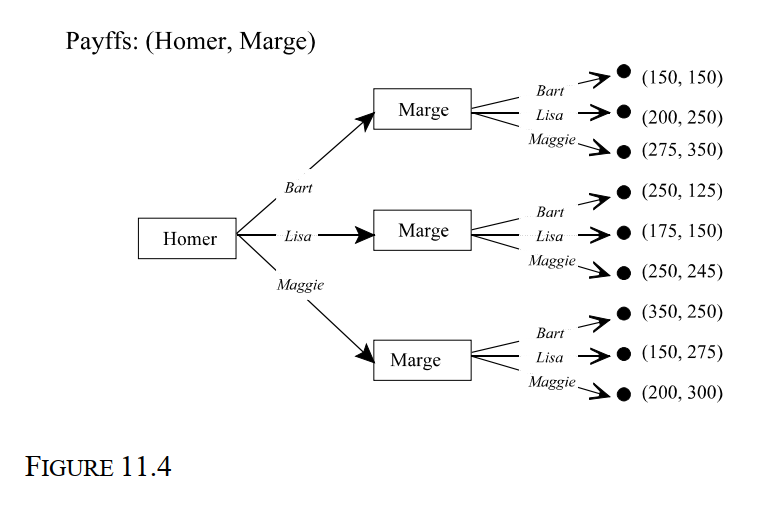Multiple Choice

-Consider again the multi stage-game in Figure 11.4 in which Homer moves first. The subgame perfect equilibrium for this game is:
A) {Bart 6 Lisa}
B) {Bart 6 Maggie}
C) {Lisa 6 Bart}
D) {Maggie 6 Maggie}
E) This game does not have a subgame perfect equilibrium.
Correct Answer:

Verified
Correct Answer:
Verified
Q1: <img src="https://d2lvgg3v3hfg70.cloudfront.net/TBR1330/.jpg" alt=" -Consider game depicted
Q2: <img src="https://d2lvgg3v3hfg70.cloudfront.net/TBR1330/.jpg" alt=" -Consider game depicted
Q4: <img src="https://d2lvgg3v3hfg70.cloudfront.net/TBR1330/.jpg" alt=" -Refer to Figure
Q5: <img src="https://d2lvgg3v3hfg70.cloudfront.net/TBR1330/.jpg" alt=" -Consider the game
Q6: A player has a first-mover advantage:<br>A) If
Q7: <img src="https://d2lvgg3v3hfg70.cloudfront.net/TBR1330/.jpg" alt=" -Consider the one-time,
Q8: <img src="https://d2lvgg3v3hfg70.cloudfront.net/TBR1330/.jpg" alt=" -Consider the game
Q9: <img src="https://d2lvgg3v3hfg70.cloudfront.net/TBR1330/.jpg" alt=" -Refer to Figure
Q10: <img src="https://d2lvgg3v3hfg70.cloudfront.net/TBR1330/.jpg" alt=" -Suppose that the
Q11: In multistage games, every decision node is:<br>A)